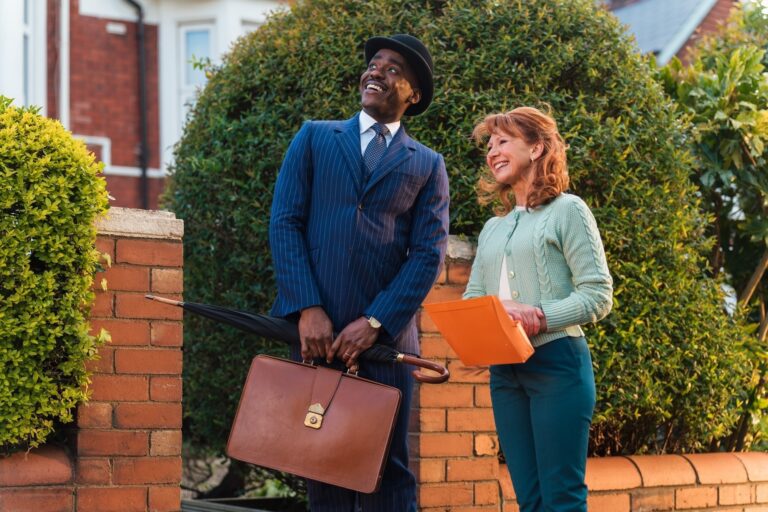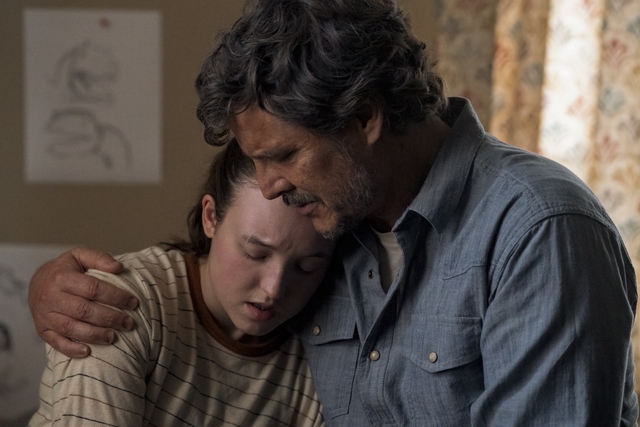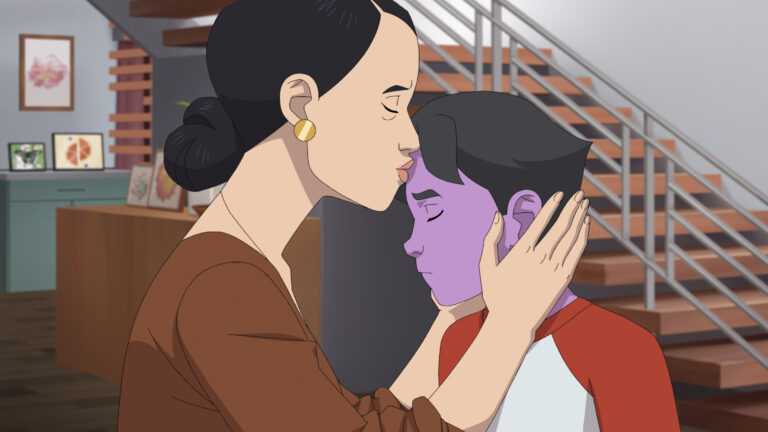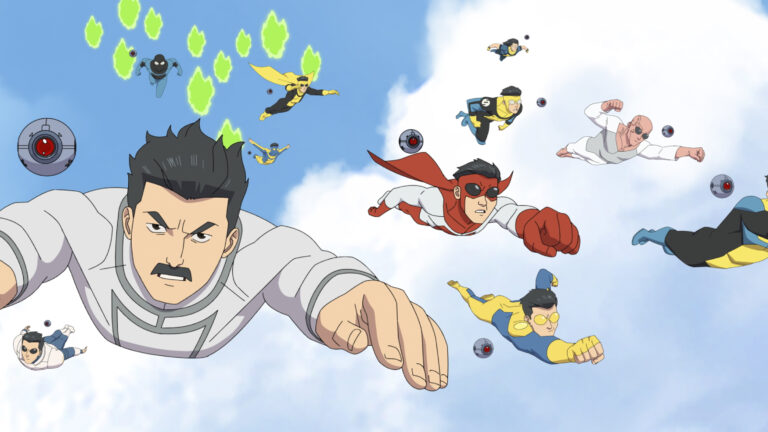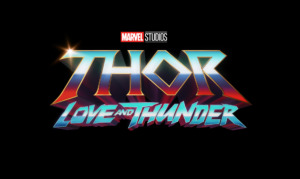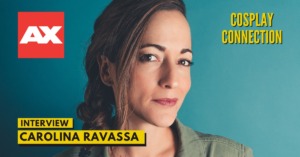The Boys is a graphic, witty, and brilliant show. Through the use of satire and social commentary, this show provides audiences with what we need from the superhero genre, something new, fresh, and insightful.
The Boys- Satire and Social Commentary
The Boys is a take on what happens when superheroes—who are as popular as celebrities, as influential as politicians, and as revered as gods—abuse their superpowers rather than use them for good. Intent on stopping the corrupt superheroes, The Boys, a group of vigilantes, continue their heroic quest to expose the truth about The Seven and Vought—the multibillion-dollar conglomerate that manages the superheroes and covers up their dirty secrets.
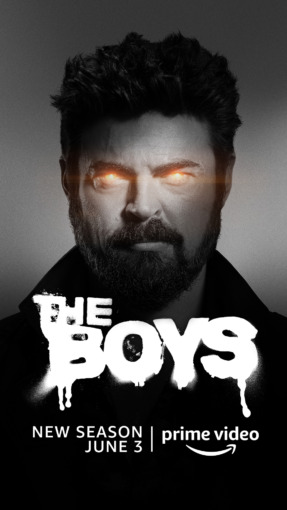
It’s the seemingly powerless against the super powerful. The Boys is based on The New York Times best-selling comic by Garth Ennis and Darick Robertson, who also serve as executive producers, and developed by executive producer and showrunner Eric Kripke.
Sexism vs Feminism
The major feminist themes in this show are undeniable. The most competent and sympathetic characters are the women. Starlight (Erin Moriarty), Kimiko (Karen Fukuhara), and Mauve (Dominique McElligott) are all superheroes who have stories that keep audiences invested. All three women are met with circumstances dictated by men, yet every single one of them finds their own way out. Kimiko is a fighter, she knows she is stronger than the men around her. Homelander may be the leader of The Seven but Mauve has learned how to play the workplace game, she sucks up to Homelander (Antony Starr) while at “work”, but knows who to go to try and take him down. Starlight holds tight to her integrity and even when playing the superhero game, remains who she is. As the series goes on one of the best things to see is the women standing up to Homelander.
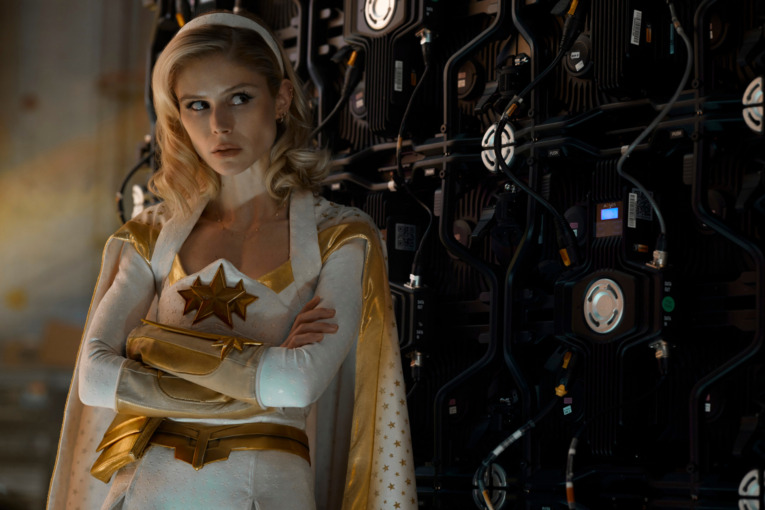
The end of season two brings us some hope as Starlight returns to her original costume. After we sat through a season of a half of watching Starlight walk around in a glorified swimsuit, against her will. The change happens immediately after she stops playing the game at Vought. She stands up for herself and we get to see her more comfortable in her own skin. Season three however puts her “back in her place”, with everyone at Vought bowing down to Homelander and placating Starlight when she is equally as capable of killing these people. The social commentary of having everyone fear and respect a man when there is an equally competent woman right there is poignant.
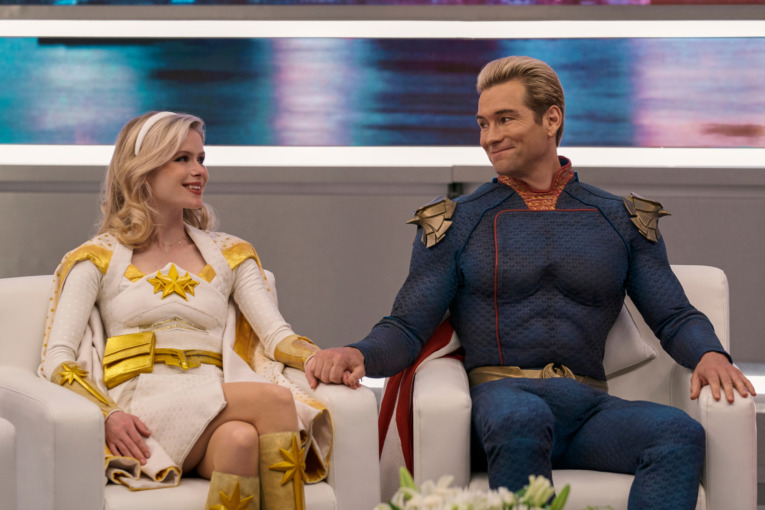
Black Lives Matter and Performative Allyship
The other major social commentary that is worth talking about is, during season three, and their use of the Black Lives Matter movement and the superhero Bluehawk (Nick Wechsler). Bluehawk is forced to make an apology in a Black neighborhood after using excessive violence in that area. Using lines that have been spoken verbatim by republican senators and a previous president, Bluehawk’s half-assed apologies result in him assaulting innocent and justifiably angry citizens. “Vought rejects racism unequivocally”. And although audiences aren’t big fans of A-Train’s (Jessie Usher) selfish nature, in fact, audiences spent most of this series hating him. But the fact that in season three, while he’s calling for justice for his brother and his community but is being brushed off and silenced, is an all too real reflection of the real world.
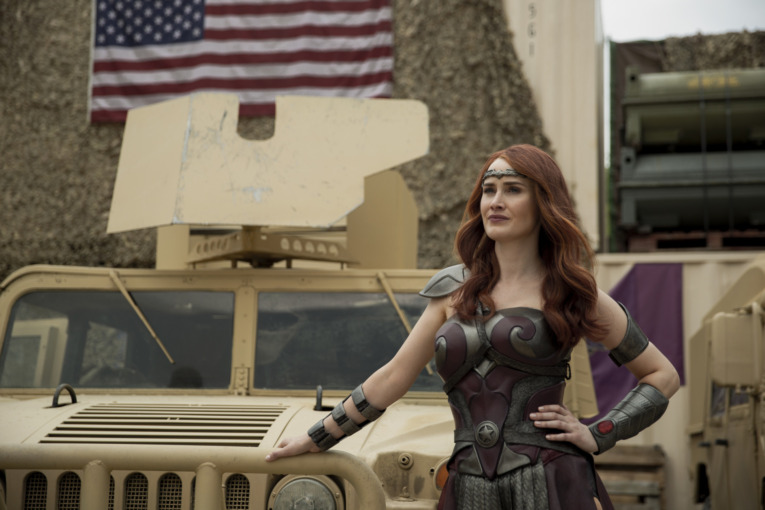
Season three really focuses on poignant societal and political problems. Performative allyship is one of them. The amusement park with the pride merchandise is the best possible depiction of capitalism and performative allyship. And it feels like Major corporations don’t actually care about supporting the LGBTQ+ community, if they did they’d have “pride” designs all year round not just during pride month. The commercials and campaigns, the TV shows, and interviews are all examples of working with the public. The show does such a good job of making its satire unmistakable and A-Train doing his Africa journey, and Mauve being forced on a “coming out” tour are both aggressive examples of making minorities perform. It’s the use of the “token whatever” trope. For a long time, Mauve was the token woman on the 7, now she’s the token gay. A-Train is the token black guy. Mauve just wants to survive as A-Train exploits his position.
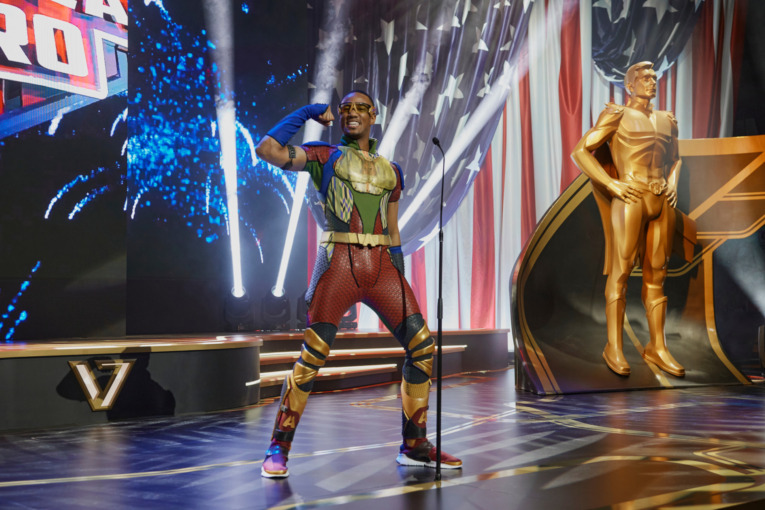
Nationalism and Dictatorship
In season two, Stormfront (Aya Cash) and Homelander’s relationship and how they appeal to their base is one “USA” chant from a Republican National Convention. The way the two of them rally their base by simply shouting generic and threatening phrases that are meant to trigger people is a lot like growing up in a Fox News household. I’m also willing to bet that a good majority of this show’s fanbase missed the point. The supes are clearly an allegory for the military and Stormfront and Homelander are a commentary on the US need to occupy foreign countries.
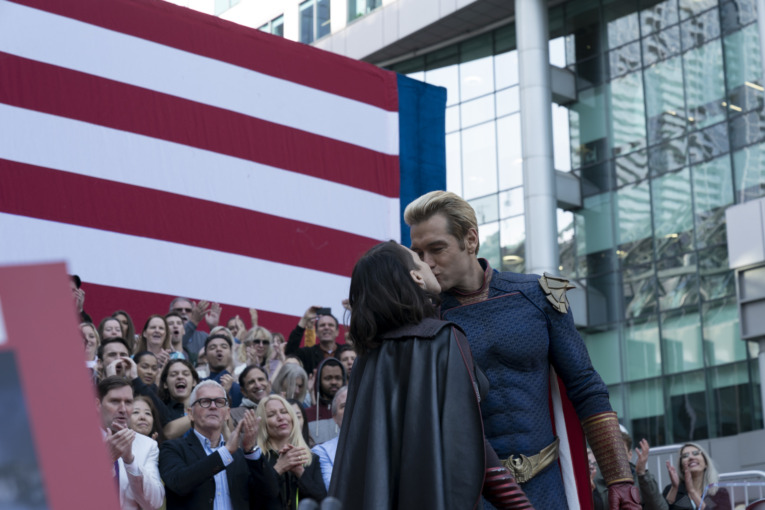
The Imagine video sent me over the edge. The fact that it was totally unexpected but also made me roll my eyes was the way many of us felt when the actual video was released at the height of quarantine. The show also gets an A+ for using the actual video. It was necessary and wonderful commentary and it really put the video into context for people who didn’t see a problem before, ya know as we were in a worldwide pandemic.
In season three Homelander is literally building a dictatorship, killing or firing anyone that threatens to oppose him. Rallying his base and doing everything he can to appeal to those that don’t want to blindly follow him. Homelander is more and more clearly a stand-in for a previous president that will remain unnamed…Down to his horrible “, I am better, I am stronger” speech and his followers somehow finding that positive? Genuinely confused but some people are and were in fact that blind. The only thing they were missing was letting Homelander say “fake news”. He definitely defines the concept, perhaps making him say the actual words would be too on the nose.
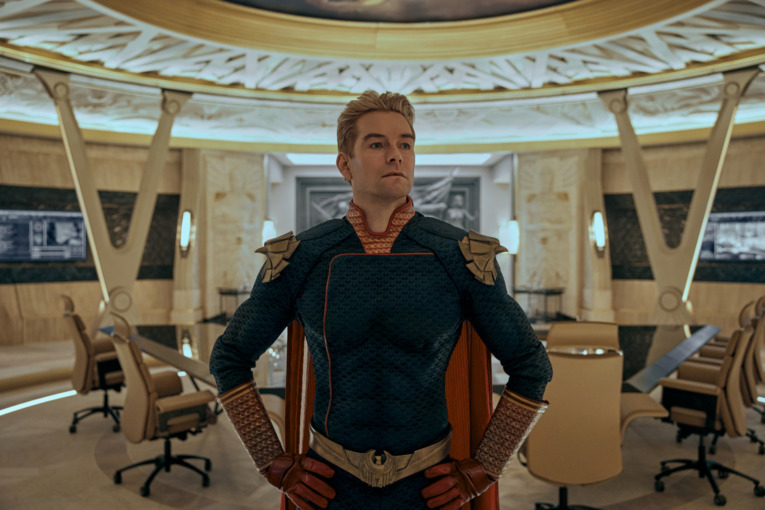
The Boys has an original, well-thought-out storyline with dynamic characters and wonderful production, but what elevates the show past mere entertainment is its social commentaries. The use of comic book tropes draws attention to problems so ingrained in the medium they really can’t be separated. I hope The Boys continues to draw attention to important social issues for as long as mainstream comic book media exists. The Boys streams on Amazon on Fridays.

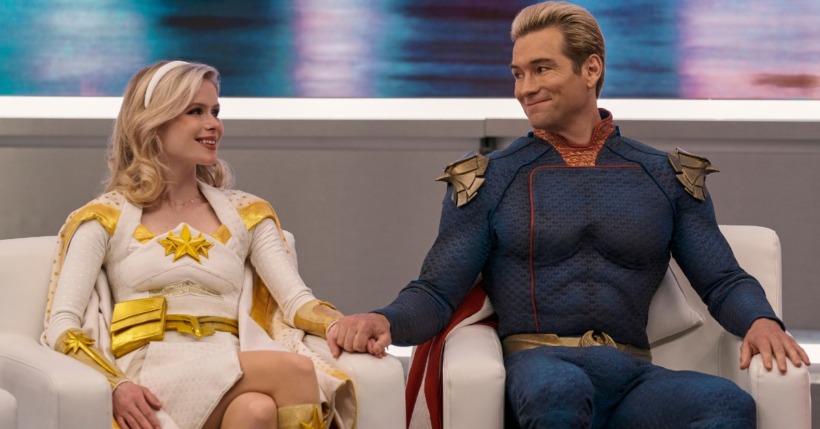
![“[Lou Wilson] Might Die!” Siobhan Thompson Teases Dimension 20 Live: Battle At The Bowl](https://templeofgeek.com/wp-content/uploads/2025/05/Dimension-20-Battle-At-The-Bowl-header-768x384.jpg)
